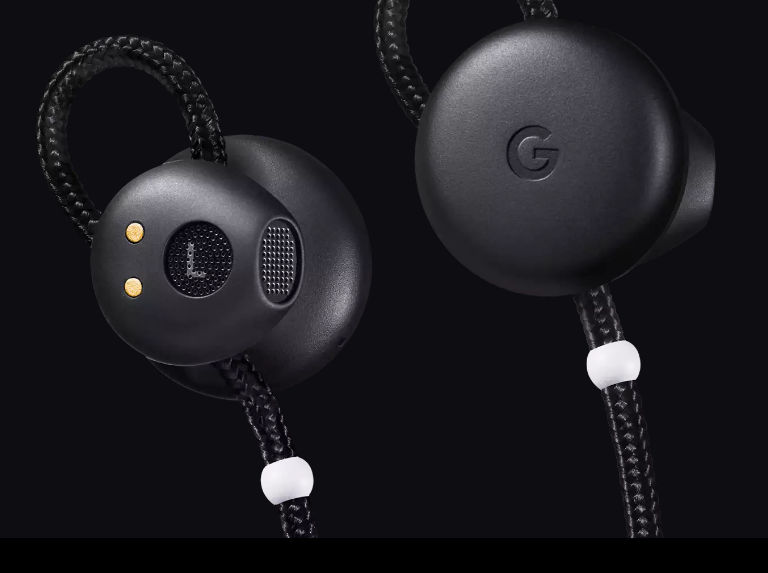| Babel Fish Is Real, But Who Pays? |
| Written by Lucy Black | |||
| Thursday, 05 October 2017 | |||
|
Google's most noteworthy announcement at its recent launch event is arguably the new Pixel Buds - earpieces to you and me. What is noteworthy is that these are billed as providing real time translation. Yes, the day of the Babel Fish is upon us.
Just in case you are so uncultured as not to know about the Babel Fish, you put one in your ear and it translates allows you to understand and talk in any language. It was the creation of Douglas Adams as part of his multi-volume opus The Hitchhikers Guide To The Galaxy. The point is that the Babel Fish didn't actually exist and in the sense that Pixel Buds aren't actually a fish, even though they might be slightly fishy, it still doesn't - but the Buds do promise realtime translation. This all sounds great, but there are some interesting questions. The first is "what have ear buds got to do with translation?"
The simple answer is not a lot. The heavy lifting is being done by the associated phone and presumably the Google Cloud. I say "presumably" because at the moment it isn't actually clear where the processing is being done. The processing is being done by Google Translate and this has an online and an offline version. However, a full realtime voice-to-voice translation needs quite a bit of processing power so it may be online only. If anyone knows please add a comment. If it is online only then look out for all of the usual security/privacy issues that are going to be raised. If it is offline then look out for slow responses and complaints of battery drain.
The Pixel Buds can be used with any Bluetooth enabled phone, but the translation facility is limited to the Buds. A Google engineer stated that the translation will work with the Buds and any Android phone, but other Google documentation says that the Android phone has to be a new Pixel. It is difficult to say which is correct. However, it is very strange that the feature is linked to the use of particular Bluetooth earphones. After all, the whole point of Bluetooth anything is interoperability. It seems that the superficial reason for the special earphones is the protocol relating to the button that you have to press to make it listen and translate. Other earphones have buttons, but according to an engineer the use of such buttons just didn't fit with Google's intended UI. There is also the supposed loss of quality with older earphones resulting in packet loss that might make Google Translate look bad. OK this might be reasonable, but the result is we have a online service linked to the use of particular $159 Bluetooth earphones which certainly increases their importance in the world of earphones and is something of a first. Ok Google, now has a workable Babel Fish and it can be yours for $159 and perhaps a bit extra to buy a Pixel phone if it happens that the Buds don't work with anything but the Pixel. This is ridiculously cheap and while you can make comments about the quality of the translation it is mostly better than nothing at all. The alternative is to be reduced to miming a chicken dance at the butcher's when Google translate will give you frango, or pollo, ffowlyn or whatever chicken is in your target langauge. Sometimes one word quickly found is all it takes. As it rolls out Pixel Buds is likely to be a big hit. You might ask why it hasn't already taken off because the same facility is already in Google Translate. You can use it to do a two-way voice translation, but you have to know its there and you have to set it up and hand the phone to and fro between two people engaged in the converstation. If the Buds raise the profile and make it easy to use then you just pop it in your ear. Being a big hit might also be a problem. Google may be charging you $159 for the earphones, but it is going to have to provide you will cloud computing resources way beyond any profit that they might make. Can Google continue to pour free resources into the bottomless pit of world translation? Not at $159 a time it can't. If we are luckly the processing power in your phone could get good enough so that it can all be done offline and not bother Google's servers, but then you have to ask, again, "what's in it for Google?". We may be living through a brief period of free Babel Fish.
More InformationRelated ArticlesGoogle Translate - Breaking Down Babel Near Instant Speech Translation In Your Own Voice Skype Translator Cracks Language Barrier Is universal translation just around the corner?
To be informed about new articles on I Programmer, sign up for our weekly newsletter, subscribe to the RSS feed and follow us on Twitter, Facebook or Linkedin.
Comments
or email your comment to: comments@i-programmer.info
<ASIN:0345453743>
|
|||
| Last Updated ( Thursday, 05 October 2017 ) |





